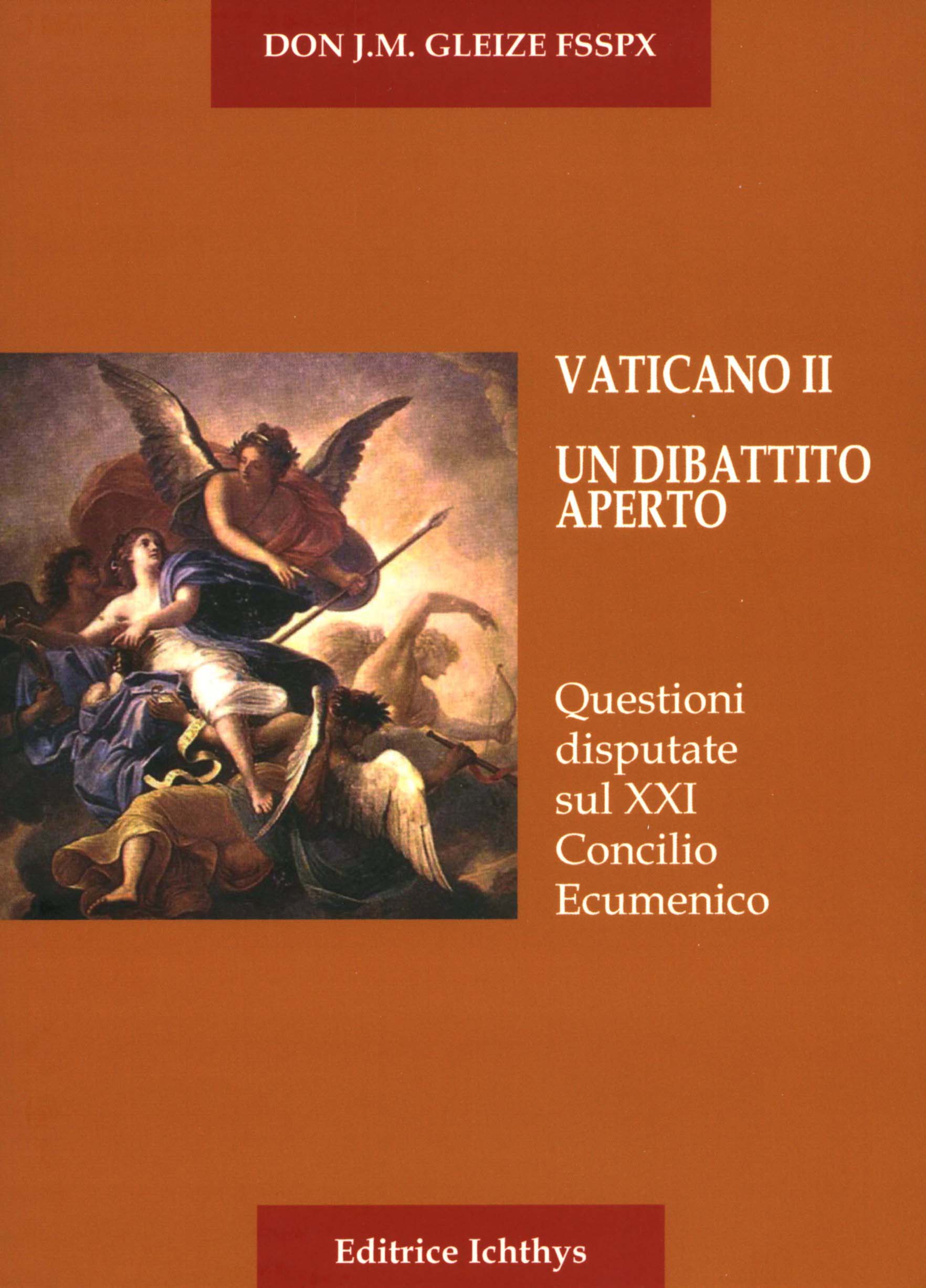 The book Vaticano II -Un Dibattito Aperto written by Fr.J.M Gleize and published by the Italian District Superior of the Society of St.Pius X (SSPX) at Albano, Italy stresses so much on the Magisterium and the infallibility of the pope. Yet it is not observed that Pope Pius XII called the dogma extra ecclesiam nulla salus an 'infallible statement' (Letter of the Holy Office 1949). This infallible statement' defined three times by three Church Councils and popes , during different periods, does not claim there is known salvation outside the visible limits of the Catholic Church. The text does not say it.
The book Vaticano II -Un Dibattito Aperto written by Fr.J.M Gleize and published by the Italian District Superior of the Society of St.Pius X (SSPX) at Albano, Italy stresses so much on the Magisterium and the infallibility of the pope. Yet it is not observed that Pope Pius XII called the dogma extra ecclesiam nulla salus an 'infallible statement' (Letter of the Holy Office 1949). This infallible statement' defined three times by three Church Councils and popes , during different periods, does not claim there is known salvation outside the visible limits of the Catholic Church. The text does not say it.
No magisterial text claims there is known salvation outside the visible boundaries of the Catholic Church.
Neither can we in 2013 identify any person who is going to be saved who is not a visible member of the Catholic Church.Neither do we know anyone this year who is already saved. This is known only to God.
So there is no magisterial text in Vatican Council II or after the Council, which contradicts the literal interpretation of the 'infallible statement'.No magisterial document mentions any exceptions., known or unknown.
So when Fr.J.Gleize interprets invincible ignorance and the baptism of desire as being an exception to the dogma who gives him this authority ? Is this not heresy?
The Letter of the Holy Office can be interpreted according to Cushingism (visible exceptions) or Feeneyism ( no visible exceptions). He chooses Cushingism.
Fr.Gleize also contradicts the General Chapter Statement of the SSPX (July 19,2013) which affirmed extra ecclesiam nullas salus and which stated that there are no exceptions.
For this reason it seems opportune that we reaffirm our faith in the Roman Catholic Church, the unique Church founded by Our Lord Jesus Christ, outside of which there is no salvation nor possibility to find the means leading to salvation.-SSPX General Chapter Statement.
He mentions the Letter of the Holy Office to Cardinal Cushing of Boston and says Lumen Gentium 16 on invincible ignorance is a 'development' -but neither the Letter nor LG 16 claim that these cases- saved are visible to us on earth, for them to be exceptions to extra ecclesiam nulla salus, the infallible teaching.
To claim that these cases are visible and that the dogma has exceptions is heresy.He is changing the meaning of the infallible teaching, as the Church taught and knew it for centuries.-Lionel Andrades






